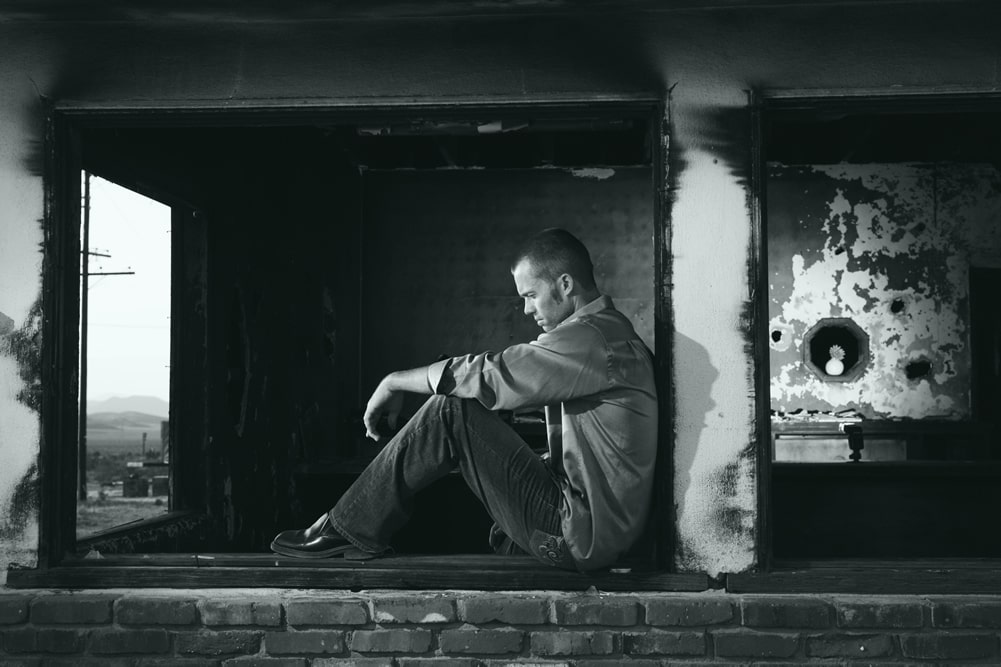What To Do When God Says “No”, But You Really Believed He Would
 In my young life, I have seen God do miraculous things. I’ve seen life restored, the sick healed, and life extended like Hezekiah (Isaiah 38:5), just to name a few. Some of these miracles were answers to my personal prayers to the Lord. However, there have been times that I have prayed, believed, even fasted – and what I petitioned God for did not come to pass. My prayers were left unanswered, or the “no” I received was not the answer I wanted.
In my young life, I have seen God do miraculous things. I’ve seen life restored, the sick healed, and life extended like Hezekiah (Isaiah 38:5), just to name a few. Some of these miracles were answers to my personal prayers to the Lord. However, there have been times that I have prayed, believed, even fasted – and what I petitioned God for did not come to pass. My prayers were left unanswered, or the “no” I received was not the answer I wanted.
Herein lies the confusion for some believers. They have believed God for something and it doesn’t come to pass, causing their faith in Jesus to be tried. In turn, they question God and even lose their faith because they lack the understanding of what I’d like to share with you today.
“What happened, God?”
 Years ago, tragedy hit my life where something I believed God for failed. I was like Job who said the thing he feared the most had come upon him (Job 3:25). It shook my faith. I was in a battle for my sanity and soul. More than once, God has spared my life. I know there is nothing impossible for Him. But, the enemy was using this tragedy as a weapon to attack my faith. Yet, even in the midst of the attack, I could not forsake my encounters and experiences with God. The truth remained that while this thing had happened to me, I had seen God on so many other occasions. This did not make sense to me, so I sought the Lord for understanding.
Years ago, tragedy hit my life where something I believed God for failed. I was like Job who said the thing he feared the most had come upon him (Job 3:25). It shook my faith. I was in a battle for my sanity and soul. More than once, God has spared my life. I know there is nothing impossible for Him. But, the enemy was using this tragedy as a weapon to attack my faith. Yet, even in the midst of the attack, I could not forsake my encounters and experiences with God. The truth remained that while this thing had happened to me, I had seen God on so many other occasions. This did not make sense to me, so I sought the Lord for understanding.
What was the difference between this time and others? Was it my tone, my faith, the lack thereof, or was it something that was out of my control? Did God hate me? Did I displease Him? Was I no longer His servant? I sought God for an answer, He replied to me with a simple question: “Was it my will?”
Fate and the Universe
 “I am the Lord: that is my name: and my glory will I not give to another, neither my praise to graven images.” (Isaiah 42:8)
“I am the Lord: that is my name: and my glory will I not give to another, neither my praise to graven images.” (Isaiah 42:8)
Know this about the will of God – the purpose of His will is to bring Him glory. However, some have exchanged the will of God for “fate” and “the universe.” So, when life’s situations like death, birth, miracles, or whatever happens, and the credit is given to these things. Essentially, God’s glory has been given away. God wants His glory.
According to the BibleGateway KJV Bible, “universe” and “fate” are not in the Bible. Yet, teammates are incorporating these terms into their spiritual vocabulary. Some even give credit to “the universe” and “fate” for the happenings of life while rejecting them as the will of God. But if you read in the book of Genesis, this “universe” was created by God, and “fate” is a counterfeit term used for “predestination” (Romans 8:29). We must be sure to uphold the truth of God over the philosophy of man no matter how good or logical it sounds.
Is it His Will?
 Ecclesiastes 9:11 says that “time and chance happen to them all.” This means that both good and bad things will happen to all humankind. But, if you are like me, when I first got saved I thought that “saved” meant “saved from the bad.” I didn’t understand that we were saved from damnation. So, when life happened, it caused me to question salvation. I had to learn that as a believer, we will walk through the fire like Shadrach, Meshach, and Abednego – but accompanied by the Son of God who will never leave nor forsake us.
Ecclesiastes 9:11 says that “time and chance happen to them all.” This means that both good and bad things will happen to all humankind. But, if you are like me, when I first got saved I thought that “saved” meant “saved from the bad.” I didn’t understand that we were saved from damnation. So, when life happened, it caused me to question salvation. I had to learn that as a believer, we will walk through the fire like Shadrach, Meshach, and Abednego – but accompanied by the Son of God who will never leave nor forsake us.
The Bible tells us through many scriptures that when we ask God for something and believe it, we will receive it. However, we have to understand the Word of God in context – not only in verse but through the fullness of the Gospel. In that, we will understand that Jesus prayed according to the will of The Father (Matthew 26:39).
1 John 5:14-15 King James Version (KJV):
14 And this is the confidence that we have in him, that, if we ask any thing according to his will, he heareth us:
15 And if we know that he hear us, whatsoever we ask, we know that we have the petitions that we desired of him.
When the Lord revealed this, I had to change how I dealt with a “no” from God. I had to understand that His will played a role in my prayer. When I accepted this, I was able to appreciate how Job could say, “thou he slay me, yet will I trust in Him” (Job 13:15).
Even Jesus had a prayer request denied. Recall, Gethsemane (Matthew 26:36-46), Jesus understanding that everything was subject to the will of God asked The Father, “if it is possible,” allow the cup to pass. Jesus says then says, “Nevertheless, not my will” as if the Father had replied with a “no.” Scripture only documents what Jesus said, but from the scripture, we know that God denied the request because Jesus died for us. That “no” is the very reason you and I can call each other brethren. Thank God, for that “no.”
The Relationship Between Our Motives and God’s “No”
James 4:3 (KJV) “Ye ask, and receive not, because ye ask amiss, that ye may consume it upon your lusts.”
Amiss means with the wrong motive. One of my friends brought this to my attention some time ago. After she shared this scripture with me, I began to seek God about purifying my motives even more. God weighs strongly the motives of our heart. According to this scripture, you and I could not get what we ask for because we ask “amiss” – the hidden reason for our ask does not please God.
Ask yourself, “Why am I asking God for this?” If God grants that healing, will you give Him your life? Healing will not guarantee your soul’s salvation. If He gives you finances, will you make money your god? If He sends you a mate, will you love him or her more than God? If He gives you that call and anointing, will you use your influence to draw people to God or yourself?
I know those are some strong, sobering questions. Don’t get me wrong – there is nothing sinful about asking God for what we want. In fact, Psalm 37:4 says, if we delight in the Lord, He will give us the desire of our hearts. But, if He gives it to us, will it draw us closer or pull us further from Him? If the answer is the latter, know that it is not the will of God that we get a “yes” to our prayer and lose Him. So, some of us are not receiving what we prayed for because our motive is wrong.
But, What About Death and Sickness?
 I have seen many people lose their faith in these two areas. We have to understand that death is a part of life and God never promised us that no one would die, or that no one would be sick. He never promised an allotted amount of time to anyone.
I have seen many people lose their faith in these two areas. We have to understand that death is a part of life and God never promised us that no one would die, or that no one would be sick. He never promised an allotted amount of time to anyone.
It’s a tough part of life. Is it painful? Indeed. I wouldn’t wish it on my worse enemy. But, I have learned over the years to trust God in His sovereignty. Losing someone dear to you is a wound only God can comfort. Notice I didn’t say heal. I said comfort because our God is a comforter and a healer. If He were to heal my wound, that would mean He would have to bring my Daddy back. But instead, the Lord comforts my loss and strengthens me when I am weak.
If you are like me, find peace in the Will of God. I know it happened. I know it’s painful. More importantly, God knows. Exchange your pain, regret, bitterness, unforgiveness and everything else for the peace of God that passes all understanding (Philippians 4:7).
SO, WHAT’S THE PLAY CALL?
1 Thessalonians 5:16-18 says, “Rejoice always, pray without ceasing, give thanks in all circumstances; for this is the will of God in Christ Jesus for you.”
Teammate, continue to make your requests known to God. Know that there is a difference between a request and a promise. If God promised it, it is sure to come to pass. But, if we ask, there will be an answer according to His Will. God is all knowing, not us. We have to keep trusting and depending on Him.
No one knows the mind of God, except His Spirit (1 Corinthians 2:11). God does as He will. As I mentioned, I have asked God for things before, and He did not allow it. You are not alone. Our Father is a good Father, and any good parent would not want their children to be spoiled or to suffer by receiving what will hurt them in the long-run.
If you do not receive the answer you desired, do not lose faith. Find peace, counting it as the will of God.
I leave you with this: Romans 8:28 (KJV), “And we know that all things work together for good to them that love God, to them who are the called according to his purpose.”
I pray this helps.
I love you all!




